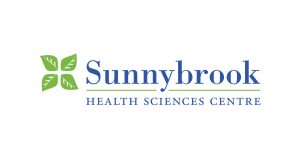about us
An interdisciplinary team of researchers
The NeuroCOVID-19 project brings together experts from the Graham NeuroImaging Lab at Sunnybrook Research Institute and the KL-CARE group at Rotman Research Institute, both located in Toronto, Ontario. Our diverse team includes scientists and clinician researchers from Sunnybrook Health Sciences Centre, Baycrest, and St. Michael’s Hospital. With expertise spanning MRI neuroimaging, neuroinformatics, cognitive neuroscience, behavioural assessments, neurology, and critical care, we take a comprehensive approach to studying the brain and behavioural impacts of Long-Haul COVID-19.
We are investigating differences in brain regions and functions in individuals affected by Long-Haul COVID-19. Our goal is to understand not only the behavioural impairments but also the changes in brain anatomy and physiology that occur in COVID-19 patients.
Study Participants
Our study involves two participant groups:
- Group 1: Individuals who tested positive for COVID-19
- Group 2: Control participants who tested negative for COVID-19
Both groups undergo the same assessments, with participants invited to return for follow-up sessions 3 months after their first visit, and again 1 to 5 years later. This timeline allows us to monitor whether any observed brain or behavioural changes resolve within the expected recovery period and assess long-term effects over up to 6 years.
Study Assessments
During each visit, participants complete a series of tests and assessments, including:
- EEG to measure brain electrical signals
- MRI scan (1-1.5 hours)
- Vision and smell tests
- Cognitive tasks and mood/emotional well-being questionnaires
Participants also have the option to provide a blood sample, which will be analyzed for disease severity markers and may be used for future research.


Our latest research findings
- In Frontiers in Neurology, we compared the brain function and symptoms of individuals who had COVID-19 to those who experienced flu-like symptoms but never contracted COVID-19. Our findings show that the COVID-19 group was more likely to suffer from persistent headaches and exhibited reduced connectivity between different brain regions.
- In the Journal of Magnetic Resonance Imaging, we examined brain blood flow differences between individuals who had COVID-19 and those who had other flu-like illnesses. We discovered that COVID-19 patients had reduced blood flow in specific brain areas, particularly those related to smell, reward processing, and emotional and cognitive functions.
Recruitment Progress
To date, we have enrolled 43 participants in the control group (those who did not have COVID-19), 86 participants who had COVID-19 and self-isolated at home, and 11 participants who were hospitalized due to COVID-19. Recruitment is still ongoing!


Across both Sunnybrook and Baycrest sites, a total of 139 participants have completed their initial visit. Of these, 101 have returned for their second visit (3-month follow-up), and 32 participants have completed all three study visits. We look forward to welcoming more participants as they complete their NeuroCOVID journey.